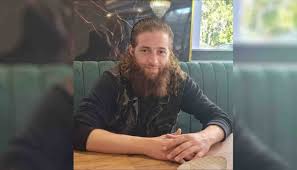The death of Youssef Labbad, a 28-year-old Syrian from the Qaboun neighbourhood in Damascus, while in the custody of Syria’s Internal Security Forces has ignited widespread controversy and public outrage. Labbad, a father of three who had recently returned from Germany, was detained at the Umayyad Mosque on 26 July 2025 and died under mysterious circumstances. Conflicting accounts from the Syrian Ministry of Interior and his family have fuelled calls for transparency and accountability.
Official Account: Mental Instability and Self-Harm
According to a source from the Syrian Ministry of Interior, cited by Syria TV, Labbad entered the Umayyad Mosque in a “psychologically unstable state” and exhibited “abnormal behaviour” caught on surveillance footage. The source claimed that mosque security personnel confined him to a guardroom after observing his conduct, where he allegedly inflicted serious injuries on himself using solid objects. Emergency services were reportedly called, but Labbad had died before they arrived.
The Ministry has launched a full investigation, with all security personnel involved referred for questioning. Interior Minister Anas Khattab pledged a transparent and impartial inquiry, promising severe penalties for any individuals found guilty. Brigadier General Osama Mohammed Khair Aatka, head of Internal Security in Damascus, reiterated claims of Labbad’s erratic behaviour, citing incoherent speech as further evidence.
Family’s Account: Torture and Extrajudicial Killing
Labbad’s family disputes the official version, alleging he died as a result of torture. According to statements reported by Panorama Syria News, he was arrested by an Internal Security patrol after refusing to leave the mosque. His wife, Sundus Othman, wrote on Facebook that he was detained and died just two days after returning to Syria, with his body showing “clear signs of torture,” including bruises and wounds. She accused the Internal Security Forces of responsibility for his death and urged Qaboun residents not to remain silent.
Labbad’s mother, as quoted by journalist Hala Al-Qudsi, claimed a security officer named Yahya Bahloul told the family he had died of a drug overdose, while Mujtahid Hospital attributed the cause to poisoning. An alternative explanation from activist Ahmad Primo suggested cardiac arrest. These contradictory statements have further muddled the official narrative. The family emphasised that Labbad, a former Free Syrian Army member who had defected from the Assad regime, had lived in Germany for 15 years and held German citizenship.
Timeline Discrepancies and Public Reaction
The timeline of events remains unclear, raising further questions. According to his mother, Labbad arrived in Damascus on Saturday, 26 July, and began a religious retreat (i’tikaf) at the Umayyad Mosque the same day. She described his behaviour as normal and said he enjoyed walks in Damascus. That night, he left the mosque around midnight intending to visit his grandmother in Arbin, a Damascus suburb, but changed his mind due to wearing “inappropriate” clothes after three days of travel. He reportedly returned to the mosque to continue his retreat. His last contact with his wife was at 2 a.m. on Monday, 28 July. The family was informed of his death at 11 p.m. that same day. However, the Ministry’s statement, dated Tuesday, 29 July, claims he died after self-harming in custody. This discrepancy—whether he died on Monday or Tuesday—has heightened public scepticism, particularly given the absence of a forensic report clarifying the time of death.
Public anger has surged, especially in Qaboun, where Labbad was well-known. A meeting took place in the neighbourhood with local notables, Labbad’s family, and a senior delegation from the Ministry of Interior, including officials from the General Criminal Investigations Department and Damascus Police Command. The delegation extended condolences and reaffirmed their commitment to a transparent investigation. However, social media reflects a prevailing sense of distrust. Activist Salma Alyafi wrote: “Youssef Labbad… fled Assad’s tyranny for years, lived in exile carrying his homeland in his heart, dreaming of returning to breathe freedom… but the hijacked homeland didn’t return to him. They arrested him, tortured him coldly, and killed him!” Others, like Scharo Maroof, voiced disillusionment with the new government under Hayat Tahrir al-Sham (HTS), suggesting Labbad’s death signals a continuation of old regime practices.
Contradictory Claims and Retracted Statements
Further confusion arose when a doctor named Shadi Al-Rifai initially claimed in a Facebook comment that Labbad was a drug addict with religious obsessive tendencies. He later deleted the comment and issued an apology, admitting he had no verified information and had not anticipated the post would become public. This retraction, alongside the family’s assertion that Labbad had no history of mental illness or drug use, has deepened public scepticism over efforts to discredit him.
Broader Context and Implications
Labbad’s death comes amid increased scrutiny of Syria’s transitional government, following the ousting of Bashar al-Assad in December 2024. The Syrian Observatory for Human Rights reported that Labbad “died under torture” following his arrest near the Umayyad Mosque, with images of his body showing visible signs of abuse. The incident has renewed fears of ongoing human rights violations reminiscent of the Assad era, when thousands were tortured and killed in detention centres.
While President Ahmed al-Sharaa has pledged to hold accountable those involved in past abuses, the case has raised doubts about the government’s commitment to reform. Justice Minister Mazhar Al-Wais has reiterated the administration’s dedication to justice, but efforts are complicated by the integration of former militia members into security forces and the resurgence of groups like ISIS.
Labbad’s death has also drawn international attention, with activists warning that silence could pave the way for further violations. The incident underscores the fragility of Syria’s transitional phase. Conflicting narratives—between claims of self-harm and allegations of torture—reflect an ongoing lack of transparency and accountability. While the Ministry of Interior insists on a fair investigation, the family’s allegations, backed by visual evidence of abuse, have galvanised public demand for justice. Without a credible forensic report and swift action against those responsible, trust in Syria’s new leadership may be irreparably damaged, threatening the very hopes of stability that drew Labbad back to his homeland.


